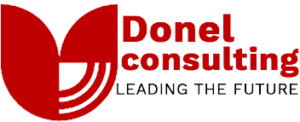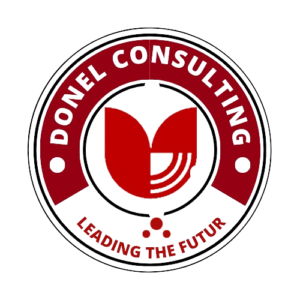Education sector
We offer a comprehensive suite of services to help governments, NGOs, and private organizations achieve their educational goals.
Education Management Information Systems (EMIS)
Donel Consulting specializes in designing and implementing robust EMIS solutions that enable education stakeholders to make data-driven decisions.
Curriculum Development
We believe that a well-designed curriculum is the foundation for quality education.
Our approach ensures that students acquire the knowledge, skills, and values necessary to thrive in the 21st century.
Professional Development Programs
Recognizing the pivotal role of teachers in shaping the future of education, Donel Consulting offers comprehensive professional development programs.
Education Sector Reform Projects
Donel Consulting is at the forefront of education sector reform, working with clients to identify systemic challenges and implement sustainable solutions.
Education Policy and Planning
Effective education policies and strategic planning are crucial for driving systemic change. Donel Consulting assists governments and education authorities in developing evidence-based policies, aligning them with national development goals, and crafting comprehensive implementation plans.
Get insights from our previous missions
Unlocking Africa’s knowledge economy requires a paradigm shift in higher education
Paradoxically, while graduates of numerous African higher education institutions face unemployment, substantial shortages of skilled labor persist across various sectors
Education reforms often lack continuity and coherence due to frequent changes in political leadership and donor priorities.
Such volatility undermines efforts to build institutional memory, erodes stakeholder trust, and impedes accumulation of expertise necessary for effective policy implementation.
Politicization of education sector has emerged as a significant impediment to sustained reform efforts.
The proliferation of low-cost private schools in many countries reflects the unmet demand for quality education.
Education in Africa thrives when communities become partners, not bystanders.
A strong community involvement is essential for thriving education.
Sub-Saharan Africa already faced a significant learning crisis before the COVID-19 pandemic. The pandemic’s arrival acted as a powerful amplifier, worsening existing problems and creating a perfect storm for educational attainment.
Strategic thaugts
The Need for SEL in Africa
Social and Emotional Learning (SEL) is a crucial piece that African education systems need to integrate to empower their students.
Ethical concerns and the digital divide limit AI’s equitable application in African contexts.
With only 28.2% of Africans enjoying internet access, a significant proportion of the population remains excluded from the transformative potential of AI. This uneven access risks exacerbating existing inequalities, as those without reliable connectivity are unable to harness AI’s benefits in domains such as education, healthcare, and economic empowerment.
The increasing role of the private sector in education provision.
Profit-driven motives : Treating education as a business rather than a public service risks prioritizing financial considerations over educational outcomes. Cost-cutting measures like hiring less qualified teachers or increasing class sizes may negatively impact quality.
Education in emergencies (EiE) offers a lifeline that extends far beyond academics.
In the chaos of crisis, schools transform into sanctuaries, offering a multifaceted range of benefits. They provide a safe haven from violence and displacement, a space for children to rebuild a sense of normalcy and routine.
The significant return on investment (ROI) associated with early childhood education. The benefits they generate outweigh the costs.
Malawi’s abolition of primary school fees in 1994 was a landmark decision with significant positive impacts on educational access.
The potential of indigenous knowledge systems to enrich curricula and promote sustainable development.
While indigenous knowledge and Western science may have distinct epistemological foundations, meaningful engagement between the two can enrich our understanding of the world.
African youth face a multitude of factors converging to create a significant mental health crisis.
It’s about the effectiveness of traditional schooling in meeting the needs of all students.
The rise of homeschooling and unschooling as alternatives to formal education, particularly among middle-class families.
Homeschooling and unschooling, while still on the fringes of education, have seen a rise in popularity, particularly among middle-class families.
The modern job market demands continuous learning and adaptation.
The days of a linear career path with a single set of skills are fading fast. The modern job market is a dynamic ecosystem, demanding agility and a growth mindset. Continuous learning and adaptation are no longer just desirable traits, but essential tools for survival and success in this ever-evolving landscape.
Apartheid’s legacy of racial segregation continues to cast a long shadow over South Africa’s education system in several ways:
There is growing emphasis on skills development beyond traditional academic domains.
In an interconnected world, the ability to navigate diverse cultural contexts and collaborate across borders is increasingly important. Language skills, cultural intelligence, and a global mindset are seen as valuable assets. International experiences and cross-cultural training programs are being integrated into many educational and professional development pathways.
EdTech, while offering a plethora of educational benefits, raises significant concerns regarding data privacy and online safety.
Refugee education is a pressing challenge with significant consequences.
The PISA Effect: A Double-Edged Sword for Global Education.
The Programme for International Student Assessment (PISA), developed by the OECD, has become a powerful force in shaping education policy around the world.
Education Funding in Africa: Challenges and Solutions.
Despite vast potential, education systems across Africa face a persistent challenge: securing adequate funding. This reality hinders efforts to provide quality education for a growing youth population. In this blog post, we’ll delve into the complexities of education funding in Africa, exploring the root causes of the shortfall and unpacking innovative solutions that can empower African nations to invest in their future by investing in their classrooms.
TVET can become a powerful tool for empowering individuals and ensuring a skilled workforce that drives economic growth and prosperity.
About achieving a balance between accountability and flexibility in educational systems ?
Homeschooling and unschooling, while still on the fringes of education, have seen a rise in popularity, particularly among middle-class families.
Investing in Teachers Transforms Schools.
More Students in Class, Less Learning Acquired : The Paradox of Education in Developing Countries
Beyond Academics: The Holistic Approach of Integrated Student Support.
Alongside academic interventions, ISS places a strong emphasis on nurturing non-cognitive skills that are critical for student success.
Across Africa, there’s a mismatch between the skills employers need and the skills graduates have. This skills gap hinders economic growth and limits job opportunities for young people.
Regional Qualifications Frameworks (RQFs) as alternative.
Education is a powerful tool for positive change on multiple levels.
Education is a transformative force that can empower individuals and societies on multiple levels. Here’s a glimpse into its far-reaching impact
Beyond Report Cards: Empowering Citizens to Improve Education with Participatory Approaches.
Traditional top-down approaches to evaluating education systems often lack a crucial element: citizen participation. To ensure true transparency and responsiveness, we need to embrace participatory approaches that empower citizens to play a role in assessing and improving education.
Traditional top-down approaches to evaluating education systems often lack a crucial element : citizen participation.
Engage traditional and religious leaders to challenge harmful social norms.
As schools grapple with the ongoing impacts of the COVID-19 pandemic and the persistent inequities it has laid bare, the holistic approach of integrated student support offers a promising path forward – one that places the comprehensive needs of students at the center and mobilizes entire communities in support of their success.
Gender Inequality in Human Capital Wealth
The world is striving towards a future where everyone has the opportunity to thrive. However, a hidden imbalance exists within human capital wealth – the value of a person’s knowledge, skills, and experience – and it falls along gender lines.
The positive effects of preschool extend beyond the children who directly participate.
Faith Leaders and Girls’ Education.
The role of faith leaders in educating girls and ending child marriage is a complex one, rife with contradictions.
African education systems will need to mainstream ESD across curricula and promote eco-literacy
A lack of educational attainment for girls may have negative impacts on their health in adulthood.
The education a girl receives can have a profound impact that extends far beyond the classroom. While the benefits of learning are widely acknowledged, a critical aspect often overlooked is the link between a girl’s educational attainment and her health in adulthood …
A lack of educational attainment for girls has negative impacts on their health in adulthood.
For centuries, formal education ruled. Now, life lessons and online tutorials are challenging the status quo. Is traditional schooling becoming obsolete, or can it adapt to this new era of informal learning?
There’s a strong and concerning link between child marriage and higher total fertility rates.
A cycle of poverty and limited opportunities.

